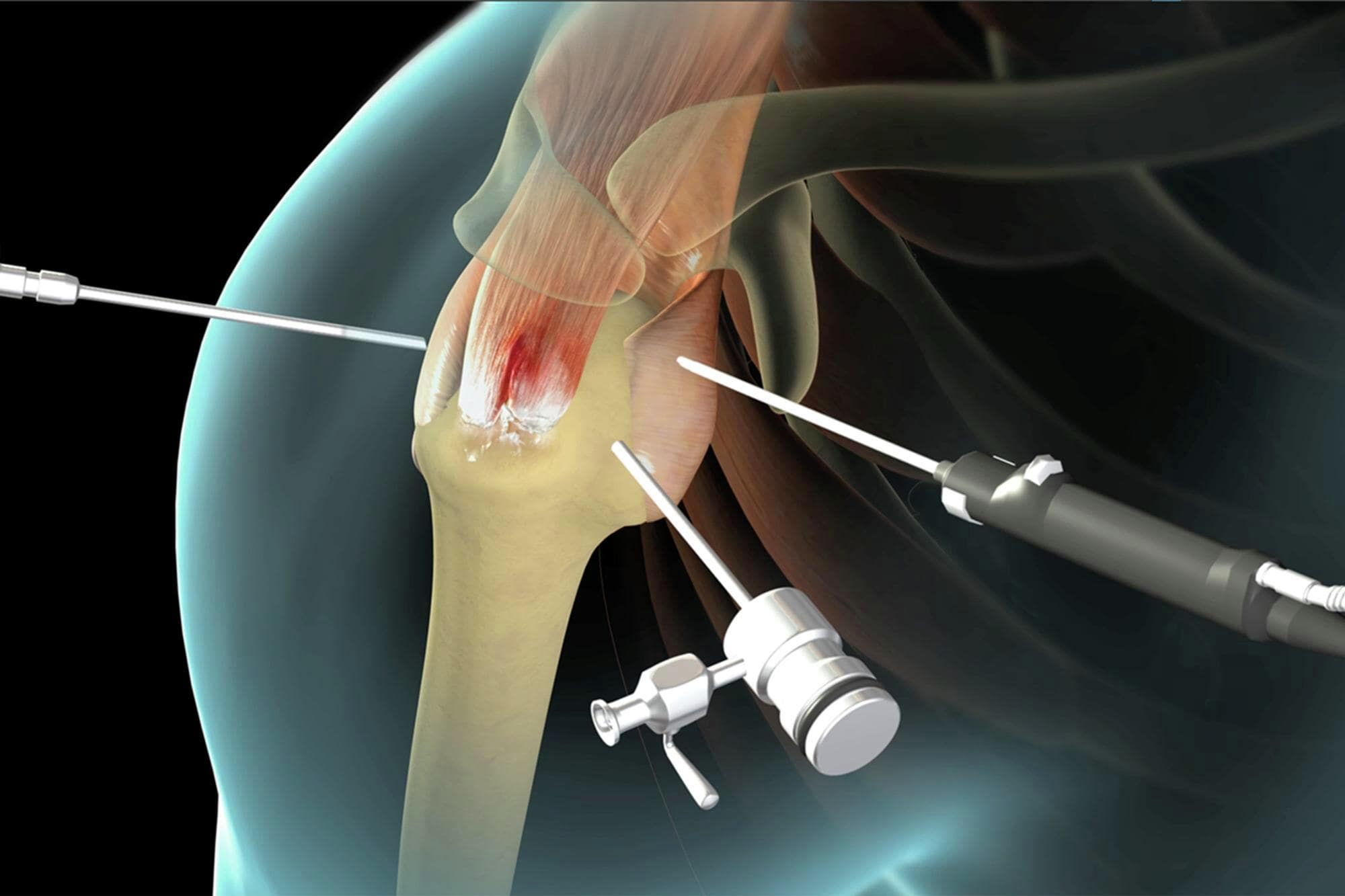
Introduction:
Rotator cuff tears are a prevalent cause of shoulder pain and discomfort, affecting millions of individuals annually. Understanding the symptoms, types, treatment options, and recovery process for rotator cuff tears is essential for effective management. As an orthopedic specialist in Chennai, let’s delve into the intricacies of this condition and its treatment. Additionally, we’ll explore the nuances of failed rotator cuff repairs and provide insights into potential next steps.
Symptoms:
Rotator cuff tears manifest through a range of symptoms, including pain at rest or during specific movements, weakness when lifting or rotating the arm, and a crackling sensation in the shoulder. While some tears may cause intense pain immediately, others develop gradually, leading to persistent discomfort and functional limitations.
Types of Rotator Cuff Tears:
- Rotator cuff tears can be classified into partial and complete tears.
- Partial tears involve incomplete detachment of the tendon from the bone, whereas complete tears result in a full separation. The size and severity of the tear influence the choice of treatment.
Treatment Options:
- Treatment for rotator cuff tears encompasses both nonsurgical and surgical approaches.
- Nonsurgical treatments focus on pain management, rest, physical therapy, and anti-inflammatory medications.
- Surgical intervention may be recommended for complete tears or cases where nonsurgical methods fail to provide relief.
Recovery and Rehabilitation:
Recovery from rotator cuff surgery involves a structured rehabilitation program aimed at restoring shoulder function and strength. While the initial phase may require immobilization and rest, gradual rehabilitation under the guidance of a physical therapist is crucial for long-term recovery. Full recovery may take a few months depending on the individual’s response to treatment.
Failed Rotator Cuff Repairs:
Despite advancements in surgical techniques, some rotator cuff repairs may fail to heal completely. Reasons for failure vary, including the size of the tear and the quality of surrounding tissues. In cases of failed repairs, additional interventions may be considered, such as tendon transfers or shoulder replacement surgery.
Next Steps:
If you’re experiencing persistent symptoms after rotator cuff surgery it’s essential to consult with an orthopedic specialist. At 7Scope Orthocare, we provide the best ortho specialist chennai who specialize in diagnosing and managing rotator cuff tears, as well as other orthopedic conditions such as meniscus injuries and ACL tears.
Conclusion:
Whether opting for nonsurgical therapies or considering surgical options, consulting with a qualified orthopedic specialist is predominant. At 7Scope Orthocare, we provide a comprehensive range of care treating several patients facing musculoskeletal problems. Through our expertise in Orthopedic care, our doctors help to cure acute and chronic injuries, sport and work injuries. If you’re facing failed treatment and suffering from a failed surgery, come to us for world-class treatment. Contact us today to schedule a consultation and embark on your journey towards a pain-free, active lifestyle.
Can I return to normal activities after rotator cuff surgery?
Yes, after a rotator cuff surgery, you’ll gradually resume normal activities following our surgeon’s guidance. Initially, rest and rehabilitation are crucial. As you progress, our expert doctors will advise on gradually reintroducing daily tasks and exercises to ensure optimal recovery and shoulder function.
Can a rotator cuff tear heal on its own?
Rotator cuff tears rarely heal completely on their own. Early intervention with rest, physical therapy, and anti-inflammatory medication may alleviate symptoms, but often surgery is necessary for full recovery. At 7Scope Clinic, our specialists provide tailored treatments to optimize healing and restore shoulder function effectively.
Will I regain full range of motion and strength in my shoulder after surgery?
At 7Scope Clinic, our skilled surgeons strive to restore full range of motion and strength in your shoulder post-surgery. With tailored rehabilitation plans and diligent follow-ups, most patients experience significant improvement. However, individual outcomes vary, and adherence to rehabilitation protocols greatly influences the extent of recovery.
When can I return to my normal activities, such as driving or lifting objects, after rotator cuff surgery?
After rotator cuff surgery, returning to normal activities like driving or lifting depends on individual healing progress. Typically, you can resume driving once you’re off pain medication and have adequate control of your shoulder. Lifting objects may take several weeks and should be gradually reintroduced following your surgeon’s advice.
GET APPOINTMENT
Schedule Appointment : Your Path to Specialized Care
Get rid of your pain, stress, and enduring with our 24/7 dental services. It's a priority to relieve the pain in surgeon as much as possible. 90% of customers claim that they would come back & recommend us to others.
